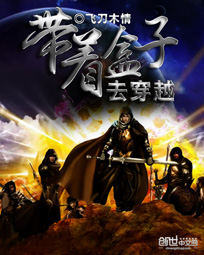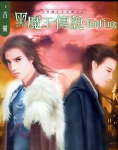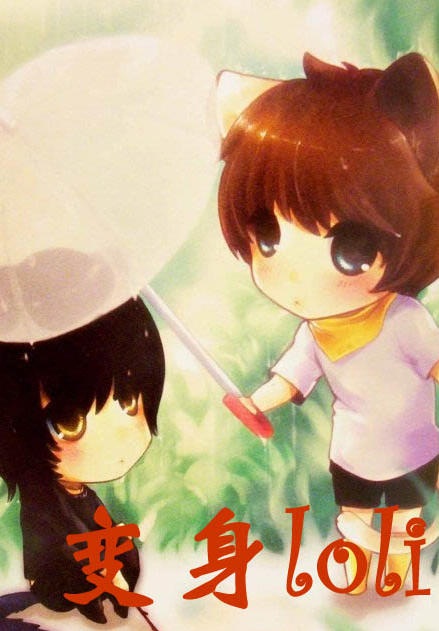wgolding.lordoftheflies-第52部分
按键盘上方向键 ← 或 → 可快速上下翻页,按键盘上的 Enter 键可回到本书目录页,按键盘上方向键 ↑ 可回到本页顶部!
————未阅读完?加入书签已便下次继续阅读!
Even before identified by name Simon is introduced as the choir boy who had fainted; an oblique bit of characterization that; in retrospect; is seen to have impressed upon the reader the hallucinatory; and hence; mystical…religious proclivities of a boy who is subject to 〃spells。〃 His name; when we are given it; reveals in its etymology the distinguishing 〃attunedness〃 of the mystic…Simon; 〃the hearkening。〃 And the Mother Goose appellative; simple; hints of the 〃holy idiot〃 folk…type。
Simon is skinny; a trait that; in a child; suggests the adult correlative of ascetic self…abnegation。 A 〃vivid little boy;〃 his face 〃glows;〃 radiant after the manner of nimbus and halo。 Jungle buds rejected by the others because inedible; Simon's religious imagination sees as 〃candles。〃 (The buds open at night into aromatic white flowers; whose scent… incense…prayer…and color…white…innocence…confirm the value that he singularly had sensed them to have。)3 And
1。 This article was written for this volume。
2。James Keating; 〃Interview with William Golding;〃 May 10; 1962。 See p。 192 in this volume。
3。The buds also appear in Ballantyne's The Coral Island; but significant here is the rejection of them by everyone but Simon。
when the lethargic Piggy fails to help gather fire wood; Simon defends him to the others by observing that the fire had been started with Piggy's glasses; that Piggy had 〃helped that way;〃 a ratiocination on Simon's part the casuistry of which is surely offset by its overriding passion。
In the scene in which Simon 〃suffers the little children to e unto him;〃 Golding's description unmistakably evokes the Biblical accounts of Christ amid the bread…hungry masses:
Then; amid the roar of bees in the afternoon sunlight; Simon found for them the fruit they could not reach; pulled off the choicest from up in the foliage; passed them back down to the endless; outstretched hands。 When he had satisfied them he paused and looked round。
In this passage and elsewhere Simon's abstinence from eating meat contributes to the impression of his saintliness; particularly since the novel implies that the hunt for meat as food disguises the blood…lust to kill for killing's sake; and further; that carnivorousness is linked with carnality (by the symbolic coitus of the sow killing) ;4
As a repeated object of ridicule; snickered over and laughed at; Simon's predicament recalls the New Testament details of the centurions' mocking of Jesus。 And as Golding has pointed out; the Biblical temptation of Christ has its parallel in Lord of the Flies; in the confrontation between the boy and the 〃beast;〃 between Simon and the sow's head; which tries to while him into placency。
To Ralph; Simon prophesies that; 〃 'You'll get back where you came from;' 〃 and by excluding himself from the predicted rescue; prophesies in that same breath his own fate; not to be rescued。 Not to be rescued is not necessarily to die; but the attendant analogues being what they are; there seems to be a clear correspondence between Simon's foresight and that of Christ; as accounts hold Christ to have anticipated the imminence of his 〃hour。〃
Images of Gethsemane and Golgotha amass in the description of Simon's agony in his thicket sanctum; transfixed by the impaled head…the apparition of the beast in the
4pare E。 L。 Epstein; 〃Notes on Lord of the Flies〃 p。 280 in this volume and; further; Golding's own remarks in the interview with James Keating; p。 195 in this volume。…Eds。
forest that induces in Simon his apprehension of the beast in man's heart; the boy…mystic's vision; to paraphrase Richard Wilbur; of how much we are the beast that prowls our woods。 The incidents of Simon's kneeling and sweating accord directly with the story of Gethsemane; moreover; Gold…ing's description reinforces those associations by half raising popular pictorial renderings of the person of Jesus and of the Agony in the Garden: Simon kneeling in an 〃arrow of sun;〃 with 〃head tilted slightly up;〃 sweat running from his 〃long; coarse hair。〃 (The deft advantage to which Golding here puts calendar…art graphics is noteworthy。)
As the thicket is the setting for incidents that recall Gethsemane; it is the setting also for events that evoke images of Golgotha。 Simon falls; in accord with gospel accounts of Jesus' ascent to the cross; and losing consciousness; regains it only after shedding blood; the nosebleed of the boy analogous to the lance…wounding of Jesus in the details of the crucifixion。
It is as sacrificial victim; however; that Simon most clearly emerges as a Christ figure。 A lad whose feet 〃left prints in the soil〃 (the dirt…road treks of the teaching Master?); he is described as 〃burned by the sun;〃 not tanned to gold like the other boys; but burnt; offering…like。 When; after he has received the revelation that the 〃beast;〃 the 〃thing〃 really to fear; is man's nature; it is with Christ…like resignation to inevitability (〃What else is there to do?〃 /〃Let Thy will be done。〃) that Simon sets out to discover what the 〃beast on the mountain〃 really is; since it is not a thing to fear。 When he finds the body of the chutist and disentangles the lines; Simon is seen as ministering to the dead; mitting the body to the earth so that the processes of deposition can plete the return 〃to earth。〃 However; because the wind takes hold of the chute and carries off the corpse; Simon bees the exorcist from the island of the false menace; the mistakenly feared dead man。 (Golding recollects in the Keating interview…after explaining that his memory of the novel might be blurred…that Simon releases the body 〃so that the wind can 'italics mine' blow this dead thing away from the island;〃 implying intention on Simon's part。) In any event; Simon's Christ…role is confirmed when; following his discovery that the 〃beast on the mountain〃 is only the dead airman; Simon es down from the mountain…the 〃heights of truth〃…to save the boys from their false fears and to turn their sights inward upon their own behavior; sharing the knowledge that; while the dead are not to be feared; the live are。 (It might better be said that; while the dead are not to be feared; the killed are。)
The responsibility for the martyrdom of Simon; like the responsibility for that of Jesus; can be ascribed either to secular or sacred interests。 At first the tribe maintains that it was not Simon they had killed; but the terrorizing 〃beast〃 and Simon is made a scapegoat; the capital…punishment of whom satisfies the established state (the tribe) by eliminating a supposed enemy。 Later on the boys admit that it was not the 〃beast〃 that they had killed; but Simon; rationalizing that the human sacrifice will finally appease the 〃beast;〃 which they have been placating with pigs' heads; and Simon is made a human offering; the immolation of whom assuages the established god (the 〃beast〃); the priests of which the 〃celebrants〃 of the sacrificial feast bee。
However; the analogue between Golding's Simon and Christianity's Saviour stops short of soteriology。 Only Simon has hearkened。 From his life and death no help accrues to that microcosm of humanity; on its island Earth in a space of sea; lost; and in need to be 〃saved。〃 Upon Golding's Simon Peter no church is founded; no mechanism for salvation。 In fact; the implication of the novel is。 that the beast in man can never be recognized because it causes imagined 〃beasts〃 forever to be misidentified and slain before identified correctly; so that; unrecognized; the beast endures。 The beast is man's inability to recognize his own responsibility for his own self…destruction。
Of course; what constitutes self…destruction the centuries have quarreled over。 (What 〃good〃 is really evil; what 〃evil〃 really good? Does man destroy himself in being himself; or in trying not to be himself? What is his nature; for him to be guilty in response to; innocent in accord with; or guilty in accord with and innocent in response to? The physics and metaphysics of 〃self〃 produce the paradoxes of guilt: does man react to a basically innocent nature with misguided guilt; or react to a basically guilty nature with unrecognizing innocence?) Apollo and Dionysus still wrestle。 Nevertheless; whatever


![[LOL]爱的双排封面](http://www.9wshu.net/cover/12/12832.jpg)



